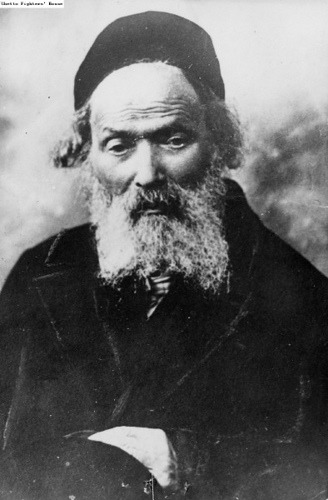Haaretz Poll: Netanyahu top rated for being PM, Labor-Kadima coaltion wouldn't beat Likud (lead by Livni would squeak by)
Friday, August 10, 2007
Dr Aaron Lerner - IMRA:
Poll carried out on 7 August, sample of 477 adult Israelis (Including
Israeli Arabs). Sample error +/- 5.4 percentage points
results for Knesset seats based on the 70% of those polled who knew who they
would vote for.
Are you satisfied with he performance of FM Livni? Yes 48% No 36% Other 16%
Are you satisfied with the performance of DM Barak? Yes 30% No 39% Other 30%
Percent who said the following were "very" or "considerably" appropriate for
the position of prime minister:
Netanyahu 51% Barak 36% Livni 40% Olmert 18%
Do you Justify the refusal of soldiers to evacuate settlers in Hebron:
Yes 32% No 57% Other 11%
Knesset seats if elections held under various scenarios:Party(leader)
Labor(Barak) 25 Kadima (Olmert) 13 Likud(Netanyahu) 30
Labor(Barak) 22 Kadima(Livni)21 Likud(Netanyahu) 29
Labor-Kadima(Barak) 32 Likud(Netanyahu) 33
Labor-Kadima(Olmert) 27 Likud(Netanyahu) 33
Labor-Kadima(Livni) 34 Likud(Netanyahu) 32]
(more commentary at the source, IMRA)
What is for certain, the next Knesset will be just as ineffective and indecisive as the previous ones in terms of dealing with the arab problem. The current Knesset looks like this:Click Each Box to Enlarge




Knesset
2006 election results
If you enlarge the chart, (there are four separate graphics) you will see that to form a 61 seat majority out of 120 seats, coalition building is a necessity. What is demonstrated by the poll results is that while the majority factions may flip-flop, the basic congestion caused by the inability of any one party or philosophy to dominate leaves a government unable to govern, without a strong foundation to act.
The electoral process in Israel remains broken. While one could argue that the Israeli electoral system provides for a greater opportunity for minority opinions to be heard, the process pushes coalition building into the government as opposed to the party level where it really should be. If the threshold for receiving a mandate would be dramatically higher, larger political blocs would form and prevent the Knesset gridlock that now exists. This is a scary proposition if you are a supporter or member of a smaller party. However, this is what free country politics is all about. You will never have a perfect match, but you become much better at setting priorities.
What remains to be seen is which of the smaller parties will have a break through year (if any). Break through political years do not result in permanent political changes, but do mean a more convoluted coalition building process. In the past Shas, Center Party, Shinui, Pensioners, Yisrael Beitenu (probably others) have had break through years. If history holds true, both Pensioners and Yisrael Beitenu will roughly fall away 35%-50% (or more) in the next election (estimate)with the voters likely returning to from where ever they came. Yisrael Beitenu may fall harder after joining the government mainstreaming itself from it's expected ideological foundation. Who comes up next? There is no evidence of a surging smaller party from the poll here, but one wonders when the National Union/NRP will finally make a serious run. Who knows? The poll could be entirely wrong and Kadima is wiped out in the upcoming election. Such is not a radical result based upon past electoral performance.
























































0 comments:
Post a Comment